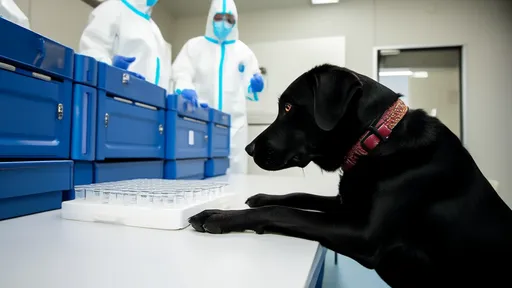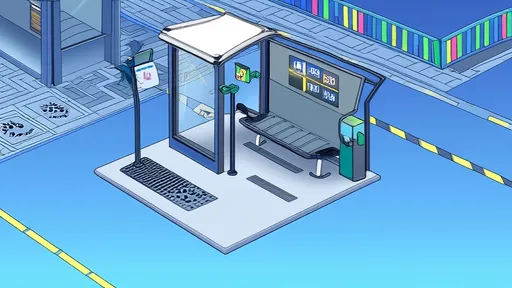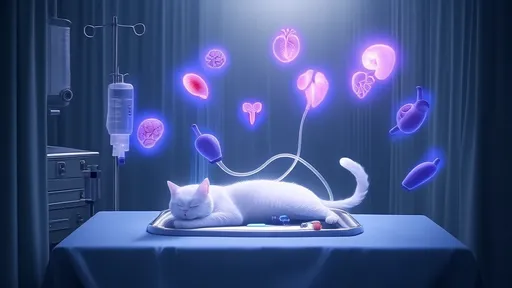The field of veterinary medicine has witnessed remarkable advancements in recent decades, with pet organ transplantation emerging as one of its most controversial frontiers. What began as experimental procedures in research labs has gradually entered clinical practice, raising complex questions about the limits of medical intervention in animal lives. From kidney transplants between cats to cutting-edge stem cell therapies for canine heart conditions, these medical miracles come with ethical dilemmas that mirror human transplant debates while introducing unique interspecies considerations.
The first recorded successful kidney transplant in a cat occurred in 1998 at the University of California, Davis, marking a watershed moment for veterinary surgery. Since then, specialized veterinary centers across North America, Europe, and Asia have performed hundreds of such procedures, primarily for cats with chronic renal failure. Unlike human medicine where deceased donors predominate, most feline transplants use kidneys from living donor cats - typically shelter animals specifically bred for this purpose. This practice immediately establishes an ethical tension between saving one life and potentially compromising another's welfare.
Canine organ transplantation presents even greater technical challenges due to dogs' more complex immune systems. Nevertheless, Japanese veterinarians made headlines in 2021 with the world's first successful liver lobe transplant between two dogs. The recipient, a 7-year-old Shiba Inu suffering from congenital liver disease, survived for 18 months post-operation before succumbing to unrelated causes. Such cases demonstrate the procedure's feasibility while highlighting its experimental nature and uncertain long-term outcomes. The surgery required an unprecedented 23-hour operation by a team of twelve specialists, underscoring the tremendous resources involved.
Ethical concerns multiply when considering cross-species transplants. University of Minnesota researchers caused both excitement and alarm with their 2016 experiment transplanting pig kidneys into dogs with end-stage renal disease. While the xenotransplantation extended the dogs' lives by an average of nine months, animal rights groups questioned the morality of creating hybrid creatures and the suffering inflicted on both donor pigs and recipient dogs. These concerns gain urgency as biotech companies eye veterinary xenotransplantation as a testing ground for human applications.
The financial aspect cannot be ignored in this discussion. A feline kidney transplant typically costs between $12,000 to $15,000, while canine procedures often exceed $25,000. These prices place such treatments firmly in the realm of affluent pet owners, raising distributive justice questions about allocating limited veterinary resources. Some critics argue these funds could save hundreds of shelter animals rather than extending one companion animal's life. Conversely, proponents counter that pushing medical boundaries ultimately benefits entire species through trickle-down technological advancements.
Psychological impacts on both animals and humans create another ethical layer. Unlike human patients, pets cannot consent to procedures or understand postoperative care requirements. Behavioral studies show some dogs experience significant distress from lifelong immunosuppressant regimens. The human-animal bond also complicates matters - owners may pursue transplants more for their own emotional needs than their pet's best interest. Veterinary psychiatrists report increasing cases of "medical heroism," where guardians insist on increasingly aggressive interventions despite poor quality-of-life prognoses.
Regulatory frameworks struggle to keep pace with these medical advancements. Only seven countries have specific guidelines for veterinary organ transplantation, leaving most procedures in a legal gray area. The lack of standardized protocols raises concerns about postoperative care quality and long-term monitoring. Some European nations have begun requiring psychiatric evaluations for pet owners seeking transplants, recognizing the complex emotional factors at play. Meanwhile, developing nations face criticism for allegedly lax oversight of experimental veterinary procedures conducted for Western clients.
The emerging field of stem cell organ regeneration may offer middle ground solutions. Japanese researchers recently grew functional miniature canine kidneys from stem cells, while Cornell University successfully repaired feline heart tissue using similar technology. These approaches could eventually eliminate the need for donor animals while reducing rejection risks. However, the astronomical costs currently place such treatments beyond reach for all but the wealthiest pet owners, creating new ethical dilemmas about equitable access to cutting-edge veterinary care.
Veterinary transplant tourism has become an unexpected byproduct of these developments. Wealthy pet owners increasingly travel to countries with more permissive regulations or lower costs for procedures unavailable at home. Thailand and Mexico have seen particular growth in this niche market, with some clinics offering transplant packages including flights and recovery resorts. This globalization of pet healthcare raises concerns about inconsistent standards and postoperative care continuity when animals return home.
Looking forward, the debate extends beyond medical capability to philosophical questions about humanity's role in shaping animal lives. As biotechnology advances blur the lines between species, society must determine where to draw ethical boundaries. Some ethicists propose applying the "reasonable creature comfort" standard - only pursuing interventions that allow animals to enjoy normal species-specific behaviors. Others advocate for complete bans on experimental procedures in pets, arguing that animals should not bear the risks of human medical ambitions. What remains clear is that as veterinary capabilities expand, so too must our ethical frameworks to ensure these powerful technologies serve animals' true best interests.

By /Jul 7, 2025

By /Jul 7, 2025

By /Jul 7, 2025

By /Jul 7, 2025

By /Jul 7, 2025

By /Jul 7, 2025

By /Jul 7, 2025

By /Jul 7, 2025

By /Jul 7, 2025

By /Jul 7, 2025

By /Jul 7, 2025

By /Jul 7, 2025

By /Jul 7, 2025

By /Jul 7, 2025

By /Jul 7, 2025

By /Jul 7, 2025

By /Jul 7, 2025

By /Jul 7, 2025